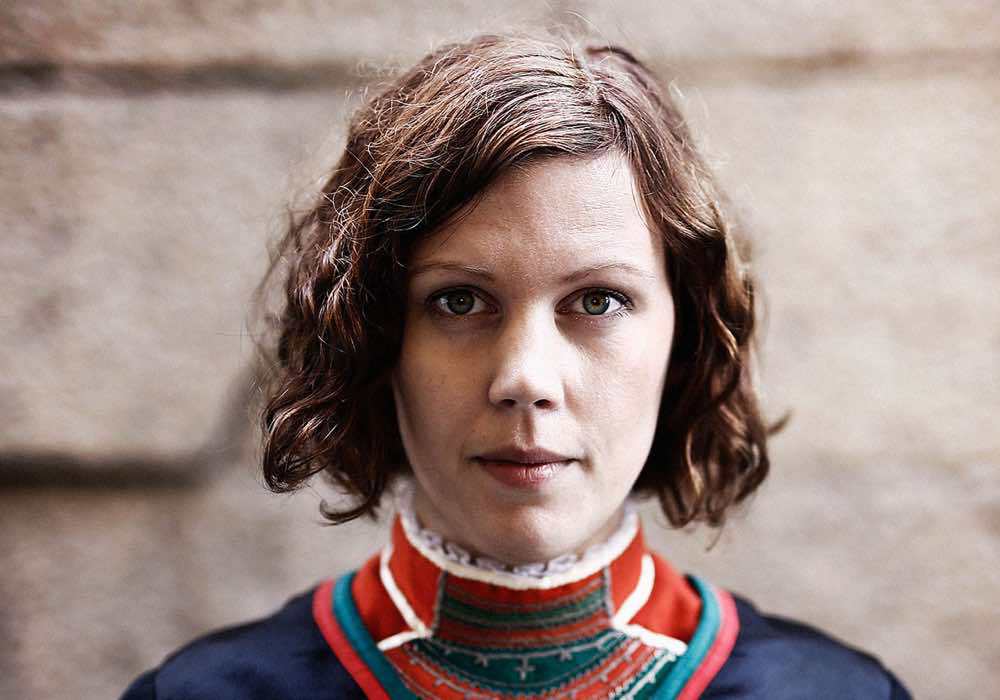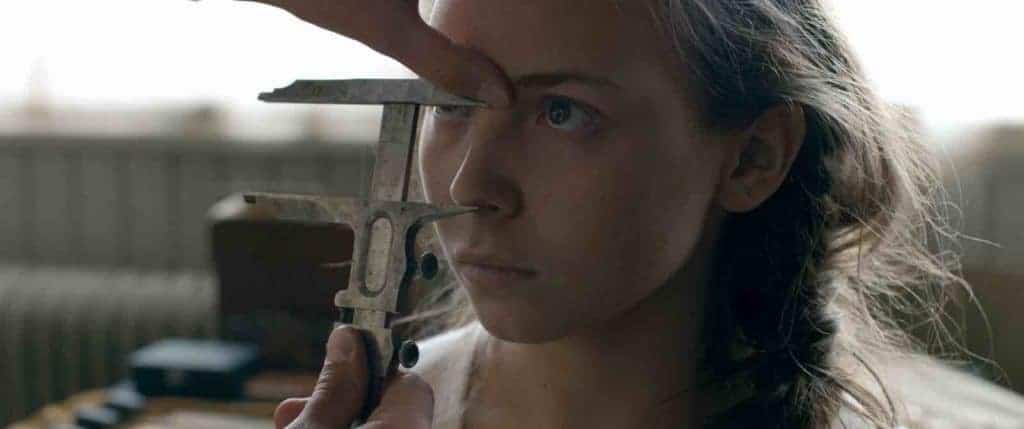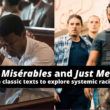Amanda Kernell’s second feature, Charter, toys with the reliability of the protagonist’s perspective, who is herself uncertain, in this psychologically complex study of a broken family. Read our interview with Kernell on her first feature, Sami Blood.

Amanda Kernell’s second feature, Charter, opens on a black screen, as we listen to a phone call: Vincent (Troy Lundkvist) is in distress, and has called his mother, Alice (Ane Dahl Torp), to tell her he doesn’t want to live with his father anymore. He hangs up before she can find out why. She starts to panic, and heads north to check on him. But does she really believe him to be in danger? Or is she merely looking for an excuse to make contact with her son, to prove to herself that he needs her?
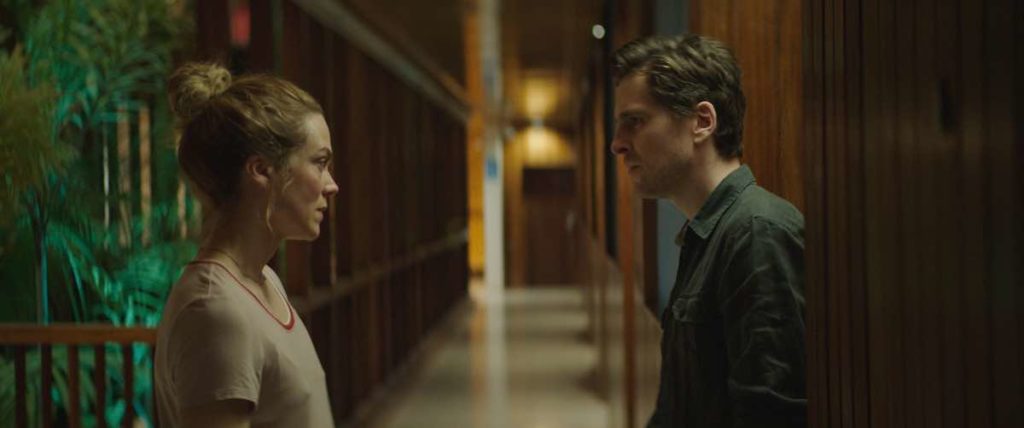
Throughout the film, Kernell toys with the reliability of Alice’s perspective, and the potential threats her children are under. When Alice first arrives in the small town where her children live to check on Vincent, everyone looks at her with cruel judgement, as if she committed some heinous crime; we know she left her husband and children, but not why or how. When she meets her ex-husband, the first thing he does is physically shove her off the porch, a bracingly violent act that makes us wonder if he has also been violent with the children. It makes Alice wonder, too. Alice’s own uncertainty about her actions, about whether her children were actually in danger with her ex even if she had felt she was, is an open question.
From the start, Alice’s behaviour is erratic. She leaves work in a hurry to check on her children. She plays by the rules at first, accepting a supervised visit, since that’s all she is allowed. But the way she’s surrounded in the room by the prying eyes of her ex and his parents makes her feel surveilled and uncomfortable, unable to communicate openly with her children — and her teenage daughter, Elina (Tintin Poggats Sarri), is visibly angry and in a hurry to leave. Once she loses all hope that she has might win the custody battle, she acts rashly, stupidly, and dangerously: effectively kidnapping her children to Spain for a week of enforced quality time. Vincent comes willingly; Elina understands that this could jeopardize their ability to ever see their mother again, and resists and resists before deciding to give her mother a chance.

In Spain, Alice still has much work to do to bridge the gap between her and her children. When they first arrive in their hotel room, they spread out as far as possible. Kernell shoots them in separate frames, and from entirely different angles, making it seem like they are in different rooms. Vincent isn’t distant, but he also won’t tell his mother why he was in distress. Elina’s anger is more complex: is she upset that her mother left or that she left her with her father? Alice spots bruises on Elina’s back, but are they a sign of abuse or, as Elina claims, the result of her excessive exercise regime that’s part of her eating disorder? Whether her father is cruel or just neglectful, we understand Elina is desperate for a sense of control, and that she’s restricting her food intake because of it.
As Alice pushes her daughter to open up to her, Kernell repeatedly makes us question whether Alice is being insensitive of Elina’s boundaries, or merely the “annoying” parent she claims to be when she insists on watching Elina like a hawk as she eats. When Alice talks to Elina about her eating disorder, the worry in Alice’s face as she admits to having had the same problem speaks of genuine parental concern. But once Alice’s ex-husband informs the police of the children’s disappearance, Alice’s motives become muddled: is she merely trying to connect with her children for their own sakes, or is she looking for an excuse to absolve herself of her actions, to get control of her children again? Certainly, her insistence on asking her children if they would prefer to live with her, and their reluctance to answer, suggests a bit of narcissism, but it’s also a kind of desperation. Is she mentally ill, as her husband claims? Or is he gaslighting her? Or, perhaps, has she been driven to act in a crazy way because she’s in an impossible situation, uncertain of whether her children need rescuing.
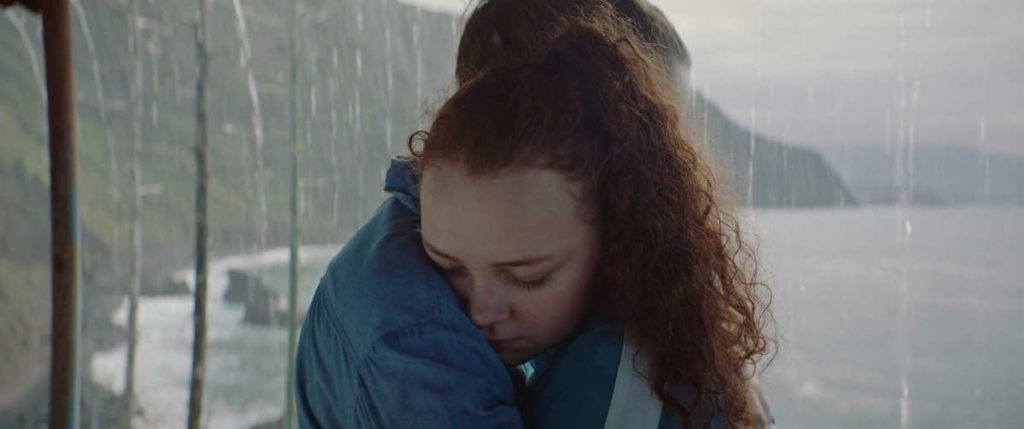
The give and take between Elina and Alice becomes the heart of Charter, and Kernell subtly charts how they become more physically close to each other in the frame, even touching, the more emotionally close they become. Elina is eminently practical, repeatedly asking her mom if she is even capable of housing them if she had custody. But her behaviour is also capricious: giving an inch one minute, and threatening to call her father the next. Elina seems more aware of how destabilizing this trip could be for her life than Alice, who is only thinking one day at a time, in a panic. Kernell, fortunately, leaves room for us to ponder how much either of these responses are the result of trauma.
It’s a testament to the sensitivity and psychological depth with which Kernell treats the material that you spend the film wondering about Alice’s emotional state rather than constantly judging her for her bad decisions. There are no definitive answers about where the family can and should go from here, but Kernell peels back layers of psychological complexity throughout so that we understand how confused Alice and Elina both are, no matter how much they love each other.
